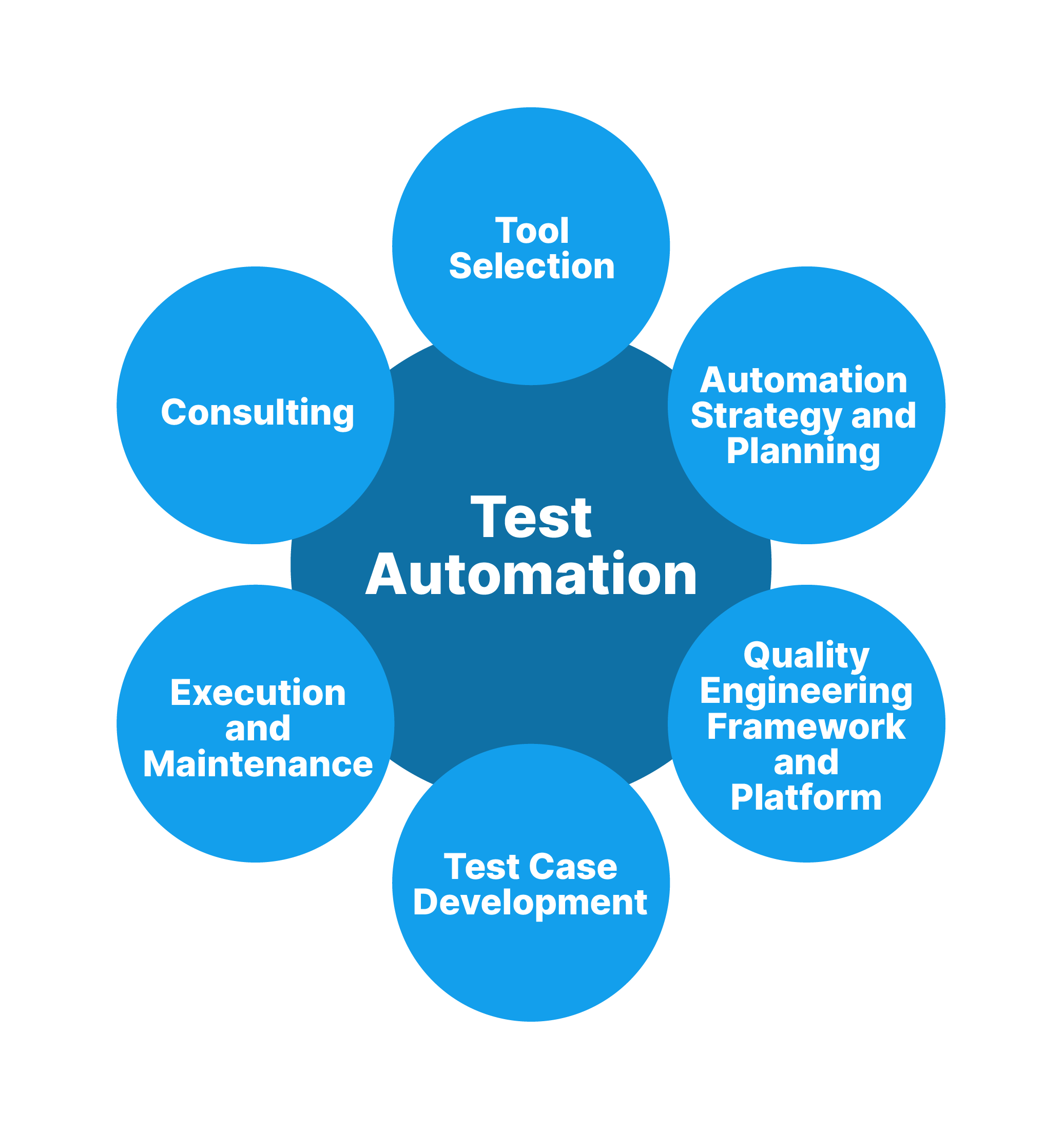From Handbook to Automated Screening: A Comprehensive Overview to Transitioning Efficiently and Properly
In the world of software application testing, the change from handbook to automated procedures has actually come to be an increasingly essential change for companies seeking to enhance efficiency and accuracy in their screening techniques. As modern technology remains to advancement, the demand for seamless and effective automated testing approaches has actually never ever been extra pressing. The journey from guidebook to automated testing is not without its obstacles, but when come close to purposefully and with a clear plan in mind, the advantages can be significant - automation testing. In this detailed guide, we will check out key steps and factors to consider crucial for an effective shift, from the initial selection of tools to the combination of automation right into existing process. Stay tuned to uncover the understandings that will assist lead the way for a smoother and a lot more effective screening procedure.
Advantages of Automated Checking
Automated screening offers numerous benefits, improving performance and precision in software application advancement processes. Automated tests can be run all at once on numerous tools and operating systems, drastically speeding up the screening phase contrasted to hand-operated testing.
Furthermore, automated testing makes certain a higher degree of accuracy in detecting issues. Because automated examinations adhere to predefined manuscripts, human mistake is reduced, causing even more reliable test results. Consistency in screening is likewise boosted, as automated tests execute the exact same actions specifically each time they are run. This consistency is important in ensuring that all performances of the software application are completely tested, reducing the probability of undetected insects slipping via to manufacturing.
Picking the Right Tools

To start with, assess your goals and requirements. Understand the range of your task, the innovations included, and the ability set of your group. This analysis will certainly help you identify the functions and capabilities you need in your screening tools.
Second of all, think about the compatibility of the tools with your existing processes and systems. Smooth combination with your existing software program development lifecycle is important to ensure a smooth change to automation.
Furthermore, evaluate the scalability and flexibility of the tools. As your testing needs advance, the tools need to have the ability to adapt and suit changes properly.
Lastly, consider the support and community around the devices. Durable support and an active customer community can offer useful sources and support when applying automated screening. By very carefully considering these aspects, you can select the right tools that line up with your requirements and established the phase for an effective change to automated testing.
Composing Efficient Test Scripts

When crafting examination manuscripts, it is important to take into consideration the specific needs of the software program being checked and make certain that the scripts address all important performances. Descriptive and clear calling conventions for test scripts and examination situations can improve readability and maintainability. In addition, incorporating mistake handling devices within the test manuscripts can help in recognizing try this out and resolving problems without delay.
Moreover, arranging examination scripts right into modular components can improve reusability and scalability, minimizing redundancy and boosting efficiency in examination manuscript upkeep. Regular evaluations and updates to test manuscripts are critical to keep pace with developing software application demands and capabilities. By following these principles, testers can develop durable and reliable examination manuscripts that add substantially to the success of automated testing procedures.
Integrating Automation Into Workflows
By seamlessly integrating automated screening tools like Selenium or Appium into the software program development lifecycle, teams can attain faster comments on code modifications, leading to quicker bug discovery and resolution. This combination allows for continuous screening throughout the development process, making sure that any concerns are determined early on, resulting in greater software quality. Correct combination of automation devices requires partnership in between advancement, testing, and procedures groups to develop a unified workflow that enhances efficiency and performance in providing top notch software application items.
Making Sure a Smooth Shift
Successfully transitioning to automated testing involves precise planning and mindful execution to lessen disturbances and make best use of performance in the software growth procedure - automation testing. To guarantee a smooth change, it is necessary to begin by carrying out a comprehensive evaluation of the present testing procedures and identifying locations where automation can bring the most significant advantages. Engaging with all stakeholders at an early stage while doing so, consisting of programmers, testers, and project managers, is critical for gathering assistance and buy-in for the automation initiative
Interaction is vital during this change stage. Clear communication of the objectives, advantages, and assumptions of automated screening helps to manage any kind of resistance or worries that may develop. Additionally, offering appropriate training and sources for employee to upskill in automation tools and techniques is vital for making sure a successful shift.

Verdict
Finally, transitioning from manual to automated screening supplies various benefits, consisting of raised performance and integrity. By selecting the suitable devices, creating efficient examination scripts, and integrating automation flawlessly into operations, organizations can guarantee a effective and smooth shift. It is crucial to embrace automation as a valuable asset in software application screening procedures to improve total quality and productivity.
In the realm of software testing, the shift from handbook to automated processes has become an increasingly vital change for companies looking for to enhance efficiency and precision in their screening methods. Automated tests can be run concurrently on several devices look at more info and running systems, significantly speeding up the testing phase compared to hands-on testing. Consistency in testing is also improved, as automated examinations perform the exact same actions specifically each time they are run.To guarantee the effective application of chosen testing devices, the production of efficient test scripts plays an important function in verifying the functionality and efficiency of automated procedures - automation testing. By following these principles, testers can create efficient and durable examination scripts that contribute considerably to the success of automated testing processes
Comments on “Selecting the Right Devices for Effective Automation Testing Solutions”